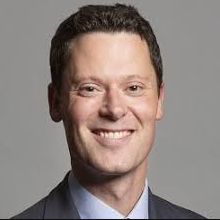
Prime Minister refuses to step down after tense showdown with senior ministers, even as his government faces increasing resignations.
Boris Johnson has defied mounting calls for his resignation following a dramatic confrontation with senior cabinet ministers, including Michael Gove, at Downing Street. Despite over 40 members of his government resigning in protest, the Prime Minister remains steadfast, insisting that he will “fight on” and will not step down.
During an intense meeting at No. 10, Johnson was urged by several ministers to accept the inevitable and resign. However, the Prime Minister made it clear that he intends to remain in office until forced out by another confidence vote. His decision to stay in power led to further resignations, including Welsh Secretary Simon Hart and Junior Health Minister Ed Argar, who both left their positions hours after the meeting.
Johnson’s aide, James Duddridge, told Sky News that the Prime Minister is “in buoyant mood” and determined to continue, citing his “14-million mandate” and a strong sense of duty. Meanwhile, a senior ally was quoted as saying that the party would have to “dip their hands in blood” if they wished to overthrow the will of the electorate.
The Prime Minister’s refusal to resign came despite a dramatic wave of cabinet departures. Among the most vocal critics was Attorney General Suella Braverman, who declared that while she would not resign, it was “time to go” for Johnson, emphasising that his handling of recent events had been “appalling”.
The Conservative Party’s 1922 Committee, which oversees leadership challenges, initially refrained from initiating an immediate rule change to allow a fresh confidence vote. They expected, however, that the cabinet would take decisive action without the need for such a vote. The delegation of ministers, led by Chief Whip Chris Heaton-Harris, included Transport Secretary Grant Shapps, Simon Hart, and possibly newly-appointed Chancellor Nadhim Zahawi.
Despite the growing pressure, Johnson maintained that resigning would trigger the chaos of a leadership contest at a time when the nation is grappling with a cost-of-living crisis, followed by potential demands for a general election. He also sought to rally wavering MPs, arguing that none of the potential leadership contenders could match his public appeal.
In the House of Commons, there was applause when a Tory MP accused Johnson of “blaming others for his mistakes” and called on him to take responsibility and resign. Sajid Javid, the first to resign as Health Secretary, urged fellow MPs to follow his lead, asserting that “the problem starts at the top.”
The growing tension within the cabinet became evident as some ministers formed a separate faction inside No. 10, attempting to resist the pressure for Johnson’s resignation. Culture Secretary Nadine Dorries, a long-time ally, reaffirmed her support for the Prime Minister, suggesting that he could remain in power despite the widespread opposition.
As the political drama unfolded, Johnson even took time away from his leadership battle for his regular weekly phone call with the Queen. Meanwhile, key figures such as Business Secretary Kwasi Kwarteng and Northern Ireland Secretary Brandon Lewis publicly withdrew their support for the embattled Prime Minister.
In the aftermath of the confrontation, resigning ministers expressed their dissatisfaction with the direction of the government. Equalities Minister Mike Freer spoke of a “hostility” towards LGBT+ people, while Safeguarding Minister Rachel Maclean criticised the government’s handling of sexual harassment issues, particularly referencing the Chris Pincher scandal. Mark Fletcher, an unpaid aide who witnessed the alleged groping incident, condemned Johnson’s response, calling it inadequate and irresponsible.
The showdown continued as Johnson, speaking to a committee of MPs, insisted that it was his “duty” to stay in power. He did not deny past comments regarding former minister Chris Pincher’s behaviour, but reiterated that resignation was not the solution. Under intense scrutiny, he eventually ruled out calling an early general election, a move that had been suggested as a possible means of maintaining control.
Labour leader Keir Starmer seized the opportunity to mock Johnson’s situation, likening it to a sinking ship and calling out those ministers still standing by the Prime Minister as the “lightweight brigade”. He urged those remaining in Johnson’s camp to show some “self-respect” and questioned how much longer they could support his increasingly isolated leadership.
As the political crisis deepens, Johnson’s refusal to resign highlights the mounting pressure within the Conservative Party, with his leadership increasingly under scrutiny from both within his own ranks and across the political spectrum.












